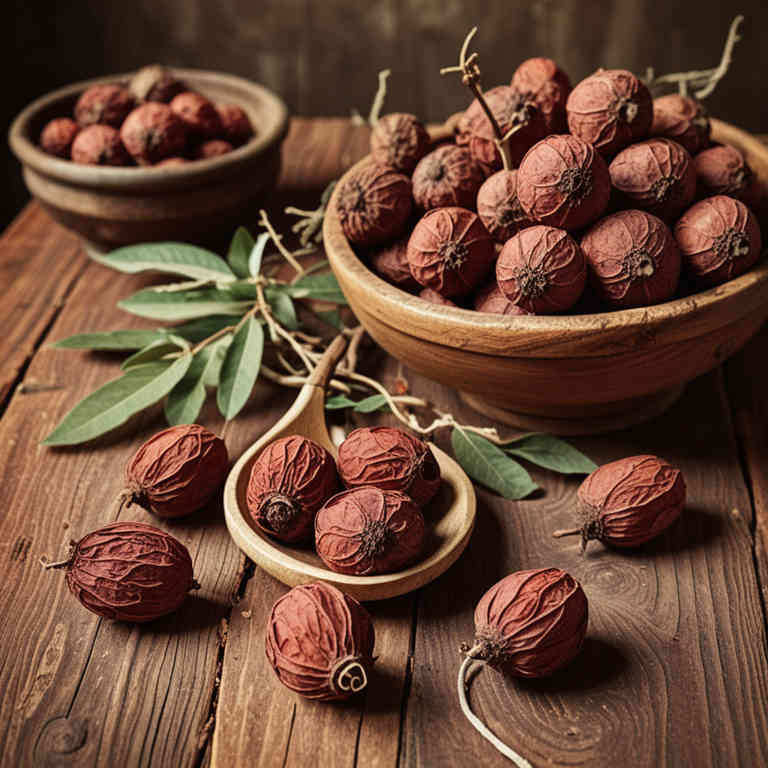Ziziphus jujuba mucillage for medicinal use

Ziziphus jujuba mucillage is a viscous, gel-like substance derived from the seeds of the Chinese date tree.
It is prepared by soaking the seeds in water, allowing the mucilage to dissolve and be extracted. This preparation is valued in herbal medicine for its soothing and demulcent properties. It is commonly used to calm irritated mucous membranes in the digestive and respiratory tracts.
In traditional herbalism, it is employed to treat conditions such as gastritis, ulcers, and coughs.
Uses
Ziziphus jujuba mucillage has been used to promote relaxation and improve sleep quality for centuries in traditional Chinese medicine.
Historically, it was valued for its calming properties and was often used to treat anxiety, insomnia, and nervous exhaustion. In traditional practices, the mucilage was prepared by soaking the fruit in water to extract its gel-like substance, which was then consumed or applied topically. Modern research suggests that the mucilage may contain bioactive compounds with anti-inflammatory and neuroprotective effects, supporting its traditional use in stress-related conditions.
Today, it is increasingly being explored as a natural remedy for sleep disorders and stress management.
Benefits
Ziziphus jujuba mucillage has health benefits such as improving sleep quality, reducing anxiety, and supporting digestive health.
This herbal preparation is derived from the sap of the jujube fruit and is known for its high mucilage content, which has soothing and protective properties. It may help in alleviating symptoms of insomnia and promoting relaxation by calming the nervous system. Additionally, its anti-inflammatory and antioxidant properties can contribute to overall wellness and immune support.
The mucilage also acts as a natural demulcent, making it beneficial for soothing irritated tissues in the throat and gastrointestinal tract.
Constituents
Ziziphus jujuba mucillage active constituents include polysaccharides, saponins, flavonoids, and amino acids.
These compounds contribute to its traditional use in promoting relaxation and improving sleep quality. The polysaccharides are known for their immunomodulatory effects, while saponins may support cardiovascular health. Flavonoids act as antioxidants, helping to reduce oxidative stress in the body.
Amino acids in the mucilage can aid in energy production and overall cellular function.
Preparation
To make Ziziphus jujuba mucillage, start by selecting high-quality ripe dates, preferably from the Ziziphus jujuba species.
Wash the dates thoroughly and chop them into small pieces to increase surface area for extraction. Place the chopped dates in a pot and add enough water to cover them by about 2 inches. Bring the mixture to a gentle simmer over low heat, allowing the mucilage to dissolve into the water.
Strain the liquid through a fine mesh or cheesecloth to collect the mucilage, which can then be used in various traditional remedies.
Side Effects
Ziziphus jujuba mucillage may lead to gastrointestinal discomfort, including nausea, vomiting, and diarrhea, especially when taken in high doses.
It can also cause drowsiness or sedation due to its mild sedative properties. Prolonged use might result in dependency or reduced effectiveness over time. Individuals with diabetes should use it cautiously, as it may lower blood sugar levels.
Additionally, allergic reactions such as rash or itching may occur in sensitive individuals.